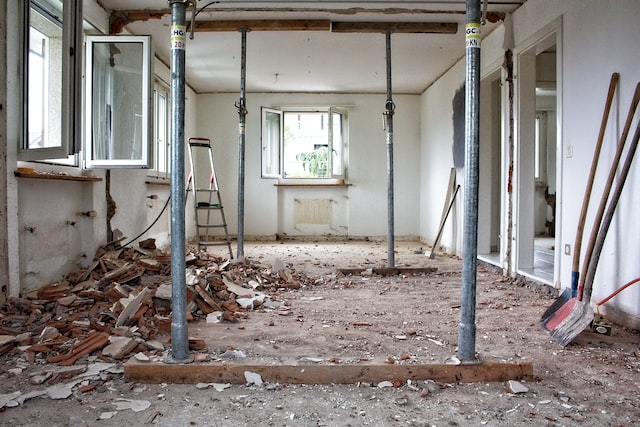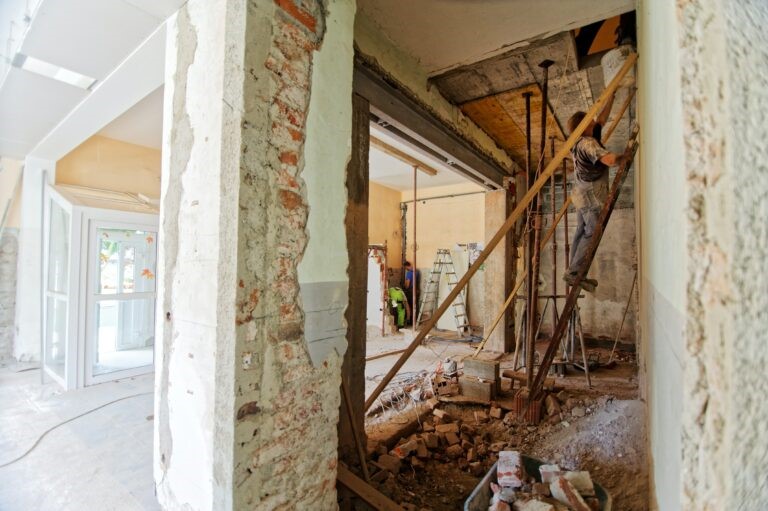Renovation Permits: Which application is right for you?
Home renovation permits are not necessary for all renovation projects. Whether the project in question requires a permit or not depends on certain aspects, such as location or the need for structural changes for example. Relevant alterations may include things like the demolishing of a...
Author: Stephanie Akkaoui Hughes
Architect, author, international speaker, Founder and CEO of AKKA Architects, Stephanie is part of a new breed of young visionary architects who operate beyond the nowadays restrained realm of architecture. A strong advocate of value created through crossdisciplinary interactions. She believes that the most sustainable innovation will happen at the intersection of different fields. Stephanie believes that space can be used as a strategic tool to drive business growth, individuals advancement, and social impact.

Renovation Permits: Which application is right for you?
Home renovation permits are not necessary for all renovation projects. Whether the project in question requires a permit or not depends on certain aspects, such as location or the need for structural changes for example. Relevant alterations may include things like the demolishing of a load-bearing wall or building a skylight which requires a new opening. If you are undertaking a project which you know is going to require these types of structural changes, you will need to submit a permit application to your local municipality. The purpose of doing so is to ensure that your renovation plans are in accordance with local building codes and ordinances, a process which helps guarantee that all structures are safe and consistent.
There are two different approaches to gaining permit approval: a final application or a draft application, which is then followed by a final one. Which you opt for should take into account your unique circumstances as well as personal preferences and priorities. In this article we outline the process of both and highlight the main pros and cons of each. By the end of this read, you should have a better idea about which permit application is best to pursue for your project.
By the end of this read, you should have a better idea about which permit application is best to pursue for your project.
A draft application involves submitting a proposal which will receive feedback from the municipality, based on which you would then submit your final application. On the other hand a final application is either approved or rejected. Rejection results in having to submit another application, therefore doubling the cost. It is important to know that these applications cost money, a price which tends to increase with the price of the construction project.
The Pros: Final vs. Draft Applications
- Final: If the final application gets approved, it means you can get to work right away. Even if the final application is ‘rejected’ but only due to minor changes, the municipality will usually provide a deadline of a couple of weeks to fix the drawings and send them back with the changes incorporated. This process does not involve the need for a new application. Final applications usually take less time to get approved so can save a great deal of time.
- Draft: If you are considering changes that are not straight-forward, a draft application is very useful to test what the municipality’s flexibility is towards the interventions you would want to make with the project. Different municipalities judge certain interventions in different ways, and vary in strictness about the ways to implement them. Importantly, a draft application approach guarantees one overall payment, even if the municipality’s advice is very different from what you submit in the first draft application.

The Cons: Final vs. Draft Applications
- Final: If the municipality’s feedback is major, the final permit can get rejected, this is obviously not ideal. In this case the design needs to be reviewed, reassessed and changed in ways to incorporate the feedback. Usually these kinds of changes cannot be completed within 2 weeks, meaning a second permit application would need to be submitted. This would require more time and double the cost. This is when the draft application would have been useful.
- Draft: Starting with a draft application can be a longer process in total, as it suggests more than one application will have to be drawn up, submitted and approved. The review process of the municipality can take 6 to 8 weeks, which can cause undesirable delays. Also, a draft application may not be as flexible as it sounds. Despite being a draft, this application must show everything you intend to do right away and in details. If you wish to add significant changes later down the line, they will require their own permit application.
In conclusion, with all factors considered, the type of permit application you opt for depends mostly on the scale of the intervention you are intending on. The main risk with the final application is that if rejected, or requires too many changes, there will be a need to apply for a second permit, therefore doubling the cost and taking as long as the draft application procedure. Therefore, roughly speaking, a final permit application is recommended for standard interventions, and a draft permit application is recommended for unusual or major interventions.
It is very important to keep in mind that municipalities have different regulations to determine whether you need a permit for a certain intervention or not. They are not always consistent between cities, or even between projects. Therefore it is critical to be well informed on the specific localities of your project. The legal requirements of remodelling are important for avoiding complications, and ensuring the process doesn’t become overwhelming. Acquiring the advice of a professional architect usually helps provide a sense confidence and reassurance throughout the all aspects of the project process, from start to finish, not to mention that an architect will have to take care of creating all the drawings and documents required by the municipality in a permit application.